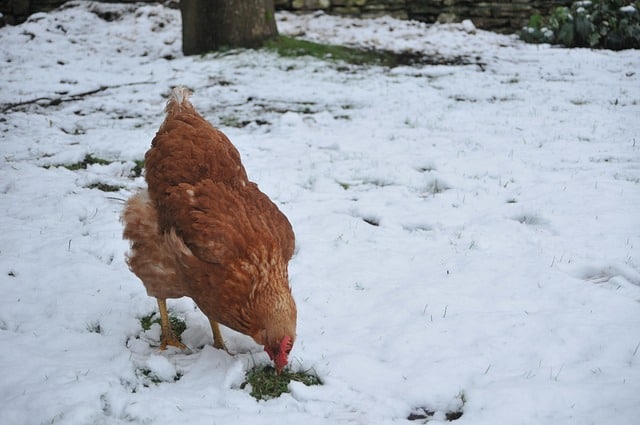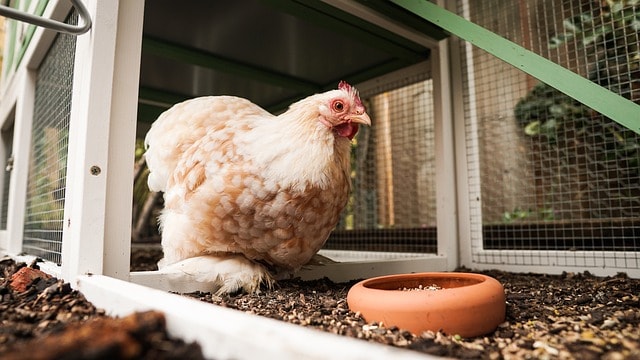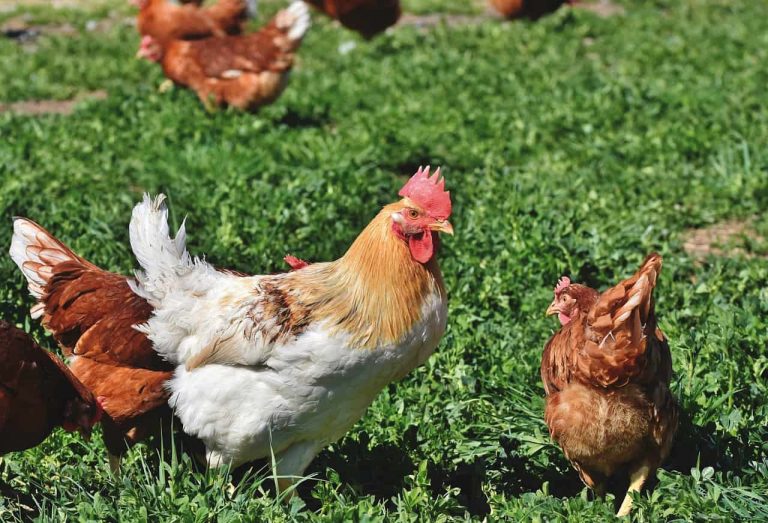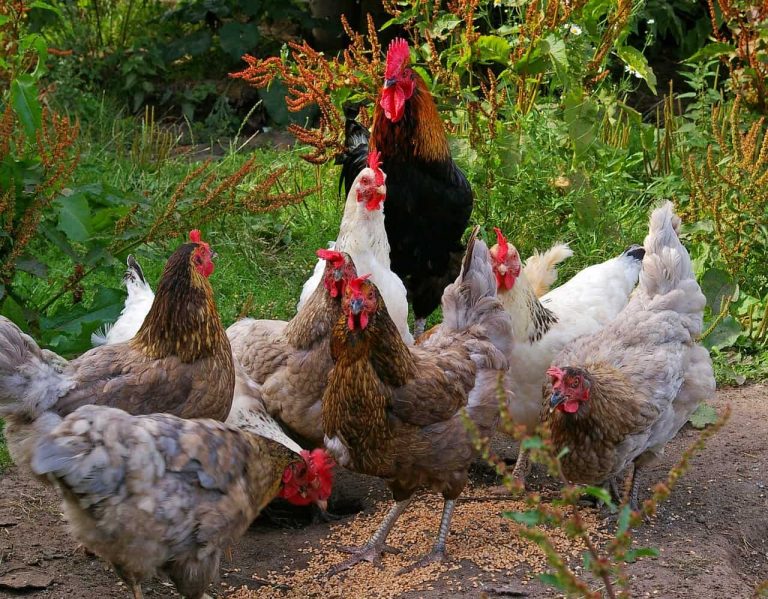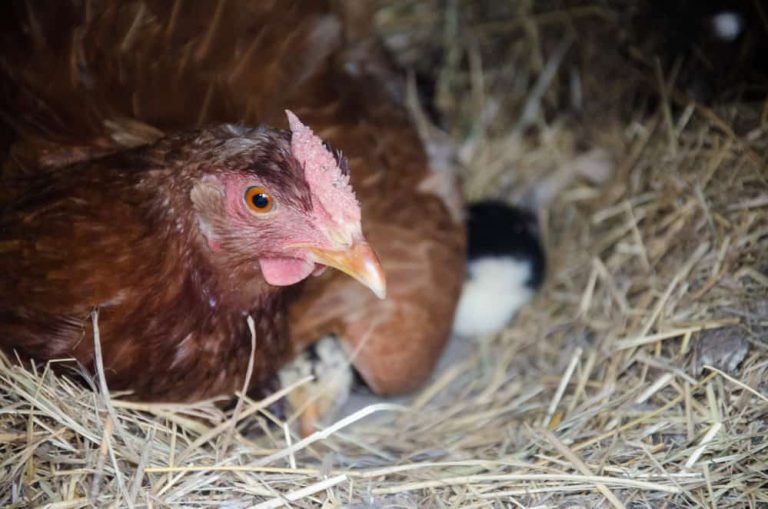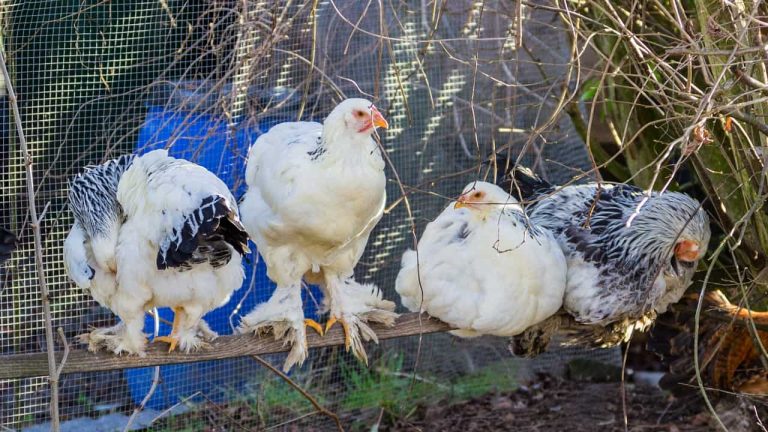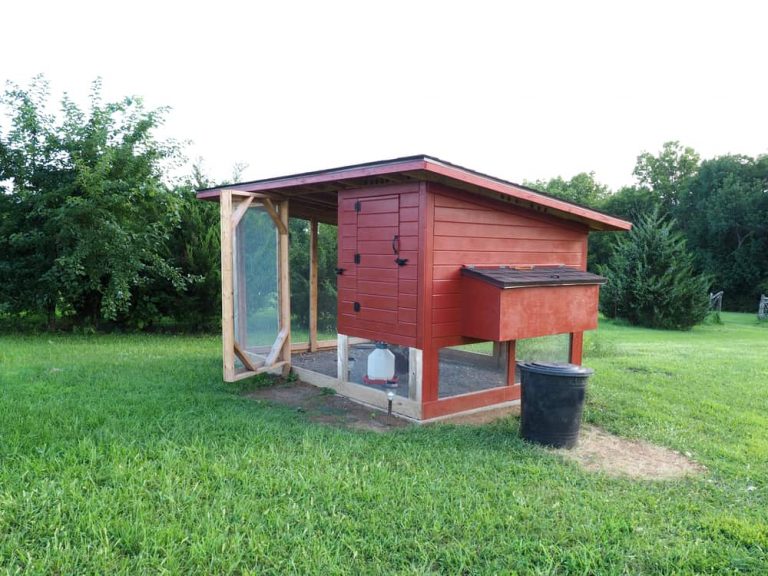Up to 70 percent of a chicken’s body is composed of water. Despite their small size, these birds need approximately a pint of water per day to maintain their health, productivity, and prevent dehydration.
Even a modest loss of 10 percent of their body water can lead to the unfortunate death of the chicken.
Failing to have access to water for just one day will cause a laying hen to stop producing eggs.
Like all living creatures, water is a critical component of the fluids circulating in a chicken’s body, including its blood. It serves as the medium that transports nutrients and oxygen to the cells, as well as waste products to the excretory organs.
One of the biggest challenges in winter chicken farming is ensuring that your flock’s drinking water doesn’t freeze in the cold weather.
People who raise chickens in northern regions are particularly familiar with this difficulty.
No matter where you live, whether it has mild winters or the temperature drops significantly, it’s important to learn how to prevent your chickens’ water from freezing.
Following a few helpful tips can keep your flock’s water unfrozen, saving you time and ensuring your lovely birds stay hydrated, healthy, and productive.
These tips are the most effective ones for dealing with freezing water in extremely cold temperatures. They are designed to keep the water from freezing, even when the temperature drops dramatically.
Here are a few methods you can use to prevent chicken water from freezing:
Contents
1. Heated Waterers
Consider purchasing heated waterers that are specifically designed for chickens. These waterers have special heating elements built into them, ensuring that the water stays above freezing temperature. They are safe to use and can be connected to an electrical outlet or powered by solar energy.
The most dependable method to prevent water from freezing is by installing an electric water heater. Many of these heaters come with heated water bases that you can place in the chicken coop. You then put a bell water system on top of the base.
The heated base is designed to switch on automatically when the temperature goes below a certain level. It maintains the water at a slightly warm temperature, preventing it from freezing. It’s important to have a reliable source of electricity, particularly if you’re not present to prevent accidental freezing.
A DIY Water Heater
If you enjoy doing DIY projects, you have the option to create your own heated water base. All you need is a 20-40 watt lightbulb, a hollow cement block, and a tin container. Simply assemble a protective container around the lightbulb and place it on top of the cement block in the chicken coop or another enclosed area.
After confirming that you have set it up correctly and safely, turn on the lightbulb to generate enough heat to prevent the water from freezing. Ensure that all electrical connections are properly done to avoid any harm to your chickens.
Another Alternative: A Heated Pet Water Bowl
Another excellent option is a heated pet water bowl. These devices work remarkably well in keeping your chicken’s water unfrozen during extremely cold temperatures. However, it’s important to note that they can cause the water to become dirty, which can pose health risks to your flock. This is because a larger surface area of water is exposed, making it easier for dirt and debris to enter and contaminate the water.
A helpful solution to address this issue is to elevate the water bowl by placing a few blocks underneath it, matching the height to the back of your shortest chicken. This simple step can help keep the water a bit cleaner. Additionally, it’s important to check the water regularly and replace it if needed.
Here are a few important reminders to ensure the safety of your flock when using an electric heater:
- Make sure all electrical connections are done correctly and safely.
- Avoid using cord extensions in the chicken coop to prevent any entanglement with the chickens.
- Insulate and secure all electric connections, keeping them out of the birds’ reach.
- Minimize the use of cords as much as possible, as chickens might accidentally trip over them, pull them out, or fly over them.
Also read: 7 Best Automatic Chicken Waterer Reviews
2. Insulated Waterers
Electric water heaters are the most dependable choice for keeping chicken water unfrozen in extreme weather conditions. However, they require a connection to the power grid or a reliable source of electricity. If you don’t have access to electricity, you’ll need to explore alternative off-grid methods to achieve your goal.
These methods are suitable for regions with milder temperatures. In such situations, off-grid methods work just as effectively as electric options, and they eliminate the need to bring electricity to your chicken coop, making it more convenient.
To slow down the freezing process, you can insulate your current waterers. Wrap them with materials like foam, bubble wrap, or old blankets. Make sure to cover the sides and bottom of the waterer with insulation, while leaving openings for the chickens to drink from.
One popular off-grid method is using the heat from the sun to prevent your chickens’ water from freezing. Objects that are black in color, in particular, can absorb heat energy from the sun and retain it for some time, even in cold temperatures.
To keep your chickens’ water from freezing, simply place it in or on a black object. The heat energy absorbed by the black surface will help prevent freezing. Here are a few tips to achieve this:
- Use old car tires: Place your flock’s waterer inside or on top of them.
- Utilize black plastic: Wrap black plastic around a block of wood or any flat object and use it as a stand for your chicken’s water system.
- Consider rubber livestock tubs: Small rubber livestock tubs or bowls can serve as excellent sources of unfrozen water for your chickens.
Although these off-grid methods can work well, they rely on sunlight. It’s essential to expose the water system to the sun for an adequate amount of time, allowing the black surface to absorb heat energy. Additionally, make sure to clean the container daily to prevent algae from growing in the water.
3. Frequent water replacement and keeping water moving
Remember to check the water regularly and replace it with fresh, warm water multiple times a day. By doing this, you decrease the likelihood of the water freezing completely and ensure that your chickens always have access to drinkable water.
Keeping the water in motion helps prevent it from freezing. When the water molecules are constantly moving, their kinetic energy delays the freezing process. Here are a few methods to promote water movement in your flock’s waterer: using golf balls, a fountain, an aerator, or a filter.
Remember that water that is moving faster will take a lot longer to freeze. However, keep in mind that some systems designed to keep the water moving may require electricity. Nevertheless, there are many other methods that work just as well without needing electricity.
4. Add Salt or Sugar (a Saltwater Bottle can Work Too).
You can lower the freezing point of water by adding a small amount of salt or sugar. However, it’s important to use this method carefully and in moderation, as excessive salt or sugar can be harmful to chickens’ health. For guidance on the appropriate amounts to use, it’s best to consult a veterinarian or poultry expert.
To prevent any risks of using inappropriate amounts of salt that could harm your chickens, there’s a clever method that involves using salt without exposing your birds to it. This method entails placing a saltwater bottle inside the water source. The bobbing bottle filled with salt water will effectively prevent the water from freezing, as salt particles naturally lower the freezing point of water.
Also read: 5 Best Chicken Waterer Reviews
5. Warm Water Additives and Warm Water Containers
You can find various commercial products designed to prevent water from freezing, such as poultry-safe water additives or de-icers. These products are specifically formulated to keep the water from freezing or to melt any ice that may form.
Another option is to provide your flock with a pre-warmed water system, which will effectively prevent the water from freezing in extremely cold temperatures. However, it’s important to note that this method may only work if the cold temperatures are not too severe or last for a long time.
Remember that chickens won’t drink water that’s too warm. You also don’t want your chickens to become dehydrated. Therefore, it’s important to make sure that the water is still enjoyable for the birds. One way to do this is by using room-temperature water or slightly warming it to lukewarm. This temperature will still be pleasant and drinkable for the chickens.
Another option is to warm the container of the water system before filling it with water. The water will hold onto the heat for a while. However, if the cold conditions continue for a long time, the water may start to lose its warmth. You can warm the system by rinsing it with hot water. This method works well when the temperatures are cold in the morning but become warmer as the day goes on.
6. Build a Little Greenhouse
Another clever idea is to create a small greenhouse for your chicken’s water system. This method also requires sunlight because it relies on capturing the heat energy from the sun to keep the water from freezing. Essentially, this off-grid approach works in a similar way to using black surfaces.
The process of constructing a mini greenhouse is straightforward. You can utilize different materials, such as old windows or sturdy, transparent plastic. Connect two old windows together to create a tent-like greenhouse where you can place the water system.
Alternatively, you can construct a wooden frame and attach clear plastic to it, creating a shelter that acts as a greenhouse for the chicken waterer. It’s important to place this structure in a sunny location, ensuring that all surfaces are exposed to the sun. This helps to minimize the cold air that enters the water system and prevents it from freezing.
Also read: Best Chicken Coop Heater Reviews
Conclusion
Water is extremely important for chickens’ well-being and survival. If they don’t have enough water, they can become dehydrated, which lowers their productivity and can even harm their health or lead to death. It’s crucial to remember that no matter which method you use to keep the water unfrozen, it’s always essential to provide clean, fresh water that is free from any contaminants. Keep a close eye on the water supply to ensure it’s available for your chickens throughout the day.

